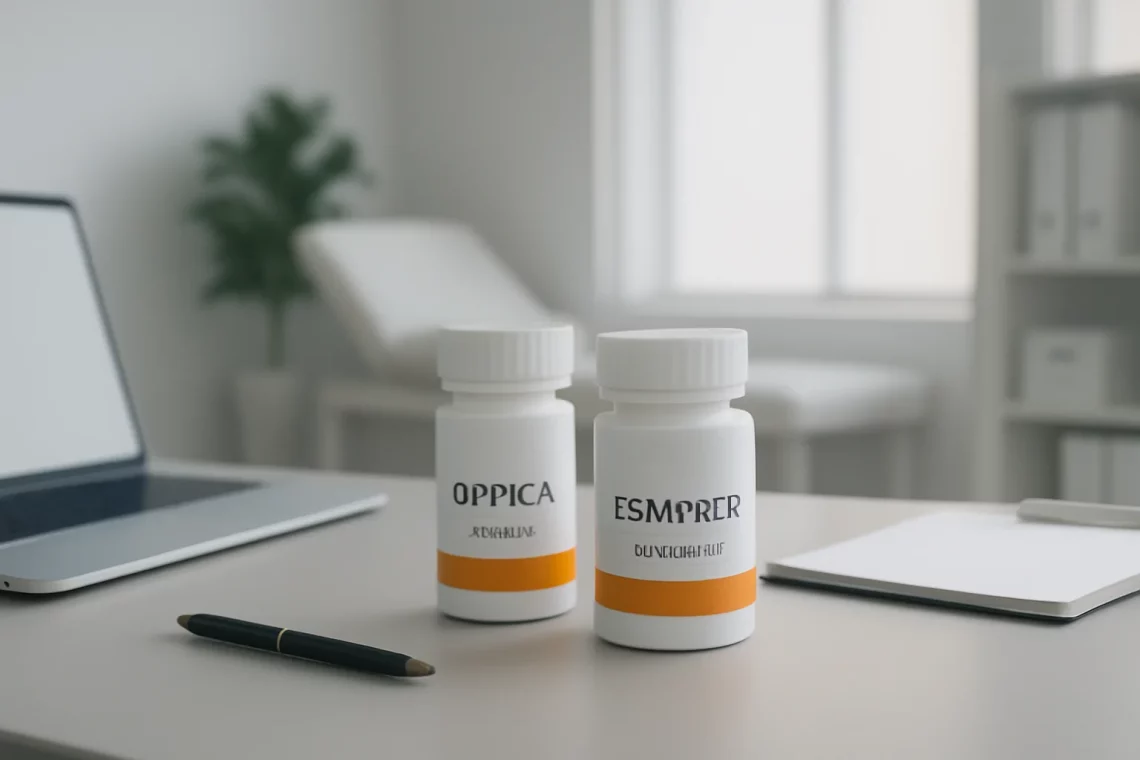
Lyrica vs Gabapentin: Which Medication Is Right for You?
The discussion surrounding medications for neuropathic pain and seizures often leads to a comparison between Lyrica and Gabapentin. Both drugs are anticonvulsants and are widely prescribed for similar conditions, yet they differ in various aspects, including their chemical makeup, efficacy, side effects, and overall patient experience.
Neuropathic pain, often characterized by a burning or shooting sensation, can arise from various underlying conditions, such as diabetes, shingles, or nerve injuries. These sensations can severely impact the quality of life, prompting healthcare professionals to seek effective treatments. Lyrica, known generically as pregabalin, and Gabapentin, often referred to by its brand name Neurontin, are two popular choices in the realm of pain management.
Understanding the nuances between these two medications is essential for patients and healthcare providers alike. While both medications may appear similar at first glance, they have unique properties that could make one more suitable than the other depending on individual circumstances. This article delves into the specifics of Lyrica and Gabapentin, exploring their uses, benefits, and challenges, as well as providing insights to help inform treatment decisions.
Understanding Lyrica: Uses and Benefits
Lyrica, or pregabalin, is a medication primarily used to treat neuropathic pain, fibromyalgia, and generalized anxiety disorder. Its mechanism of action involves binding to calcium channels in the central nervous system, which helps modulate neurotransmitter release and decrease neuronal excitability. This action makes it effective in reducing pain signals sent to the brain.
One of the primary benefits of Lyrica is its relatively rapid onset of action. Many patients report experiencing relief from pain within a few days of starting treatment. This quick response can be crucial for individuals suffering from severe pain conditions, as it allows for prompt management of symptoms.
Moreover, Lyrica has been shown to improve the overall quality of life for individuals with chronic pain. By alleviating discomfort, patients often find it easier to engage in daily activities and improve their social interactions. This enhancement in quality of life is a significant consideration for healthcare providers when prescribing treatment options.
However, it is essential to be aware of the potential side effects associated with Lyrica. Common adverse effects include dizziness, drowsiness, and weight gain. Some patients may also experience peripheral edema, which is swelling due to fluid retention. These side effects can impact adherence to the treatment regimen, making it crucial for healthcare providers to monitor their patients closely.
Additionally, Lyrica carries a risk of dependency and withdrawal symptoms if discontinued abruptly. Therefore, it is vital for patients to follow their healthcare provider’s instructions regarding dosage and discontinuation.
In summary, Lyrica offers an effective option for managing neuropathic pain and related conditions. Its rapid action and potential to improve quality of life make it a popular choice among patients and physicians. However, awareness of side effects and the importance of proper management are critical to ensuring successful treatment outcomes.
Exploring Gabapentin: Efficacy and Considerations
Gabapentin is another anticonvulsant medication that shares similarities with Lyrica but also has distinct differences. Originally developed to treat epilepsy, it has since gained popularity for managing neuropathic pain, restless legs syndrome, and certain anxiety disorders. Like Lyrica, Gabapentin works by modulating neurotransmitter release, though its exact mechanism is not fully understood.
One of the key advantages of Gabapentin is its cost-effectiveness. As a generic medication, it is often more affordable than Lyrica, making it accessible for many patients. This affordability can be a significant factor for individuals without insurance or those seeking to manage long-term treatment costs.
Gabapentin’s side effect profile is somewhat similar to that of Lyrica, including drowsiness, dizziness, and potential weight gain. However, some patients may find that they tolerate Gabapentin better than Lyrica, leading to fewer adverse effects. This variability in patient response underscores the importance of personalized medicine, where treatment is tailored to the individual’s needs.
Moreover, Gabapentin is typically associated with a lower risk of dependency compared to Lyrica. This characteristic can be particularly advantageous for patients concerned about the potential for addiction or those with a history of substance use disorders.
However, it is essential to note that Gabapentin may take longer to achieve its full effect, often requiring several weeks of consistent use for optimal results. This delayed response can be frustrating for patients seeking immediate relief from pain symptoms.
Additionally, sudden discontinuation of Gabapentin can lead to withdrawal symptoms, emphasizing the need for a gradual tapering process under medical supervision.
In conclusion, Gabapentin presents a viable option for neuropathic pain management, particularly for those seeking a more affordable alternative. While it shares some side effects with Lyrica, its unique profile may make it the preferred choice for certain patients. As always, a thorough discussion with a healthcare provider is essential to determine the most appropriate treatment plan.
Lyrica vs. Gabapentin: Key Differences and Similarities
When comparing Lyrica and Gabapentin, understanding their similarities and differences is crucial for patients and healthcare providers. Both medications belong to the class of drugs known as gabapentinoids, which means they share a similar chemical structure and mechanism of action.
One of the most significant differences lies in their pharmacokinetics, or how the body absorbs, distributes, metabolizes, and excretes the medications. Lyrica is rapidly absorbed, with peak plasma concentrations occurring within a few hours of ingestion. In contrast, Gabapentin has a slower absorption rate, which can lead to variations in how quickly patients experience relief from their symptoms.
Dosage also varies between the two medications. Lyrica is typically prescribed in lower doses, given its potency and rapid action. Gabapentin, on the other hand, often requires higher doses to achieve therapeutic effects due to its delayed onset.
Side effects are another area of comparison. While both medications can cause dizziness and drowsiness, Lyrica is more frequently associated with weight gain and peripheral edema. Conversely, Gabapentin may lead to less weight gain but can still cause sedation. Individual responses to these medications can vary widely, making it essential for patients to communicate openly with their healthcare providers about their experiences.
Cost is another critical factor. Gabapentin, being a generic drug, is generally more affordable than Lyrica, which can be a significant consideration for patients managing chronic conditions requiring long-term treatment.
Both medications also require careful monitoring, especially regarding their potential for dependency and withdrawal symptoms. Patients should be advised to follow their healthcare provider’s recommendations for dosage adjustments and discontinuation to minimize these risks.
In summary, while Lyrica and Gabapentin share similarities as anticonvulsants for neuropathic pain management, they also exhibit key differences in absorption rates, dosage requirements, side effects, and cost. A personalized approach to treatment, considering these factors, can help ensure optimal outcomes for patients.
Making the Right Choice: Factors to Consider
Choosing between Lyrica and Gabapentin involves several critical factors that patients and healthcare providers should consider. Each individual’s experience with pain management can vary significantly based on personal health history, the severity of symptoms, and individual tolerability to medication.
First and foremost, the specific condition being treated should guide the choice of medication. For instance, if a patient requires rapid relief from acute neuropathic pain, Lyrica may be the preferred option due to its quicker onset of action. Conversely, for patients who are looking for a cost-effective long-term solution, Gabapentin might be more suitable.
Patient history is another important consideration. Those with a history of substance use disorders may lean towards Gabapentin, given its lower potential for dependency. On the other hand, patients who have previously responded well to Lyrica may find it beneficial to continue with that treatment, provided they can manage its side effects.
Side effect profiles also play a crucial role in the decision-making process. Patients should discuss their experiences with both medications openly with their healthcare providers, as some individuals may tolerate one medication better than the other.
Additionally, lifestyle factors, such as the ability to manage potential side effects like drowsiness or weight gain, should be considered. Patients who lead active lifestyles and require high levels of alertness may prefer Gabapentin, especially if they find it causes less sedation.
Lastly, ongoing communication with healthcare providers is essential. Regular follow-ups can help assess the effectiveness of the chosen medication and make necessary adjustments based on the patient’s response. This collaborative approach ensures that the treatment plan remains aligned with the patient’s evolving needs.
In conclusion, the decision between Lyrica and Gabapentin should be made collaboratively, considering the specific medical condition, individual history, side effects, and overall lifestyle. Each medication has its advantages and challenges, and a personalized approach is key to achieving the best possible outcome.
**Disclaimer: This article is not intended as medical advice. Individuals should always consult their healthcare provider for diagnosis and treatment options for their specific health conditions.**




